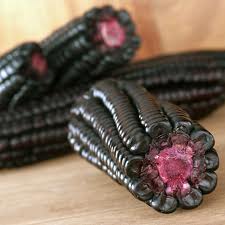One of the things is that when you are having a more balanced and proper diet your balances in your intestinal tract will actually be much better therefore creating a more balanced blood glucose level.
As I was reading I understood that the over prescribing of antibiotics will kill off both good bacteria and bad bacteria that is inside of the Gastro Intestinal Tract. This is also causing it harder for those with Diabetes and other Diseases to maintain health inside of their Intestines.
In one of the articles I was reading they said,
Source:Consider the fact that if you're eating conventionally-farmed meats, you're ingesting antibiotics with every bite, whether you know it, and approve of it, or not.
http://articles.mercola.com/sites/articles/archive/2010/03/02/diabetes-alert-your-gut-microflora-may-be-out-of-balance.aspx
After all, inside your gut is a living ecosystem, full of both good bacteria (probiotics) and bad bacteria that play a major role in your physical and mental health. So it's quite conceivable that a fundamental shift in your gut flora might make it easier to gain weight, and/or affect the delicate balance of leptin and insulin in your body.Source:
http://articles.mercola.com/sites/articles/archive/2010/03/02/diabetes-alert-your-gut-microflora-may-be-out-of-balance.aspx
Knowing that we could make a difference if we understood the proper balance and ratio of the probiotics and prebiotics needed to assist in our insulin absorption then we ourselves would be able to help our own bodies to adjust the proper insulin proportions.
The problem with this is that most doctors do not prescribe this for their Diabetic Patients instead this has to be done by you or possibly your Naturopathic Doctor. You might be scared to do this because you don't know exactly how much of what to take so you can balance that but there are solutions for that. One way the article said was to stop consuming sugary foods. Lower your grain intake and processed foods they said should help to build up the good bacteria to fight the bad bacteria and create a healthier gutThe results showed significant differences in intestinal populations of various bacterial groups between diabetics and non-diabetics. In particular, diabetics had fewer Firmicutes and more plentiful amounts of Bacteroidetes and Proteobacteria, compared to non-diabetics.
The article even goes further to say we should be eating foods within our nutritional type. Wow, very interesting as I didn't even know I had a nutritional type except I was Diabetic and I needed to stay away from sugars and sugar products.
Here is a video Link that will help you to understand more about your nutritional type Watch it and be your own judge. I am not promoting anything just bringing information to your attention.
This is only one of many ways that are unconventional in ways of treating Diabetes but if you are a person who tends to want to deal with your health on a more natural basis you may want to check out the information that Dr. Mercola has put out there on the Internet. This is just one more piece of information that we can share and learn more about. Anything we can do to make our Diabetes better then I say it is worth reading about.
Don't stop taking your medicine make sure to discuss options with your doctor or health care professionals.
Again if you are interested in being a guest blogger or would like to share something with us or have something you would like to ask about you can contact me at: diabetic.day2013@Gmail.com or #DiabeticDay on twitter.









